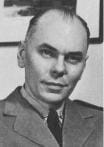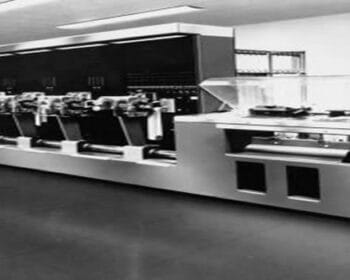IBM
IBM is now a name synonymous with computers. Formally named International Business Machines in 1924, it has a history going back to the early 1900s. They’ve expanded exponentially every year since then, and became one of the great companies in the history of computing. During the 1960s they held nearly…
Howard Aiken
Harvard Mark I
John Atanasoff

John Atanasoff, a professor of mathematics and physics at Iowa State College, built an electronic binary computer that represents the first applications of electronics to automatic calculation. Despite never being fully operational, his ideas were major contributions to modern electronic computers. He was long familiar with the problems of solving…
War of the Worlds
In 1938 Orson Wells’ infamous “War of the Worlds” was heard on the radio. Scripted as a series of short news briefs describing an alien invasion, it caused massive panic and revealed the power of mass media. Despite four announcements that it was fictional, thousands of calls flooded police departments…
The Z1 and Z2
Considered the first electromechanical computers, they were created by Konrad Zuse in 1938. He began construction of the Z1 in 1936, setting out to make a computing machine with faster, more extensive calculating power than the existing desk calculators. Deciding on a binary system for greater calculating speed, he set…
Konrad Zuse

Born June 22, 1910, Berlin-Wilmersdorf, German scientist Konrad Zuse built the first of two electromechanical computers, the Z1 and Z2. A civil engineering student in 1934, he quickly saw the potential value of a machine that solved tedious algebra in minutes. He built them using binary, setting the use of…
Atanasoff-Berry Computer

Conceived by John Atanasoff in 1937, the Atanasoff-Berry (or ABC) Computer was one of the first modern electronic digital computers. Designed to solve linear equations, it was tested in 1942. It formed the foundation of many modern computing concepts including binary arithmetic and electronic switching. Work was discontinued in the…
Hewlett-Packard

Stanford University classmates Bill Hewlett and Dave Packard founded HP in 1939. The company’s first product, built in a Palo Alto garage, was an audio oscillator—an electronic test instrument used by sound engineers. One of HP’s first customers was Walt Disney Studios, which purchased eight oscillators to develop and test…



